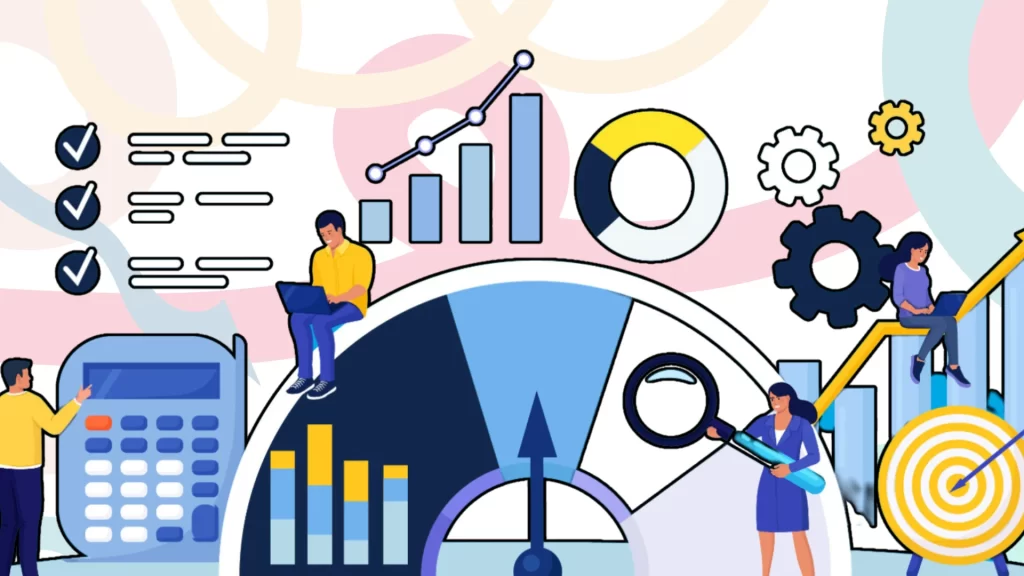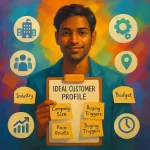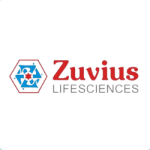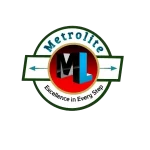Marketing Campaigns That Don’t Just Sell, They Inspire
What if your marketing campaign could do more than just sell a product? What if it could create a lasting connection with your audience, drive meaningful engagement, and deliver measurable results?
This isn’t just a dream; it’s the result of a well-structured campaign blueprint. By combining strategic planning, psychology-backed tactics, and data-driven insights, you can craft campaigns that resonate deeply with your audience. Let’s dive into the essentials of creating marketing campaigns that truly work, enriched with real-world data and actionable insights.

Why Are Marketing Campaigns Essential?
Marketing campaigns are not random bursts of creativity; they are meticulously planned efforts to achieve specific goals. Whether it’s a traditional campaign like billboards or a digital marketing campaign using Google Ads, each type has its own unique role in building a brand’s success.
Types of Marketing Campaigns
- Traditional Campaigns: Think of Amul’s iconic billboards, which have become cultural touchpoints, showcasing the brand’s wit and relevance.
- Digital Marketing Campaigns: From social media campaigns to email campaigns, the digital world offers personalized, measurable, and scalable marketing opportunities.
The Value of Marketing Campaigns
The personalized marketing campaigns can deliver 5–8 times the ROI and increase sales by 10%.
Key Benefits:
- Increased Brand Awareness: Nike’s “Just Do It” campaign has remained a universal call to action for over three decades.
- Lead Generation and Conversions: Flipkart’s Big Billion Day mixes online urgency with traditional visibility, consistently driving record-breaking sales.
- Customer Engagement: Coca-Cola’s “Share a Coke” campaign personalized bottles with popular names, fostering emotional connections and boosting engagement by encouraging people to share experiences.
- Measurable ROI: Tools like Google Analytics and HubSpot enable marketers to track every rupee spent and its impact.
Marketing campaigns, when executed with precision, create a cycle of awareness, engagement, and loyalty.
Building a Campaign That Resonates and Goes from Good to Great
Creating a marketing campaign is like building a bridge. It needs a strong foundation, clear direction, and solid materials to connect your brand with your audience effectively. Let’s explore the critical components that make this connection seamless.
1. Dive Deep into Competitor Analysis
Understanding your competition gives you insights into market gaps and opportunities.
Example: When Jio entered the telecom market, they analyzed competitors’ pricing and service weaknesses. By offering free data initially, they disrupted the entire industry.
How to Apply:
- Use tools like SEMrush or SimilarWeb to track competitor strategies.
- Identify their strengths and weaknesses to position your campaign uniquely.
2. Harness User-Generated Content (UGC)
UGC fosters authenticity and builds trust in your brand.
Example: LensKart’s #MadeYouLook campaign encouraged users to post photos wearing their glasses. This not only boosted engagement but also acted as free advertising.
How to Implement:
- Launch hashtag challenges to encourage user participation.
- Highlight user stories or reviews in your campaigns.
3. Partner with Micro-Influencers
Micro-influencers often have niche, highly engaged audiences, making them ideal for targeted campaigns.
Example: Mamaearth’s collaboration with parenting influencers helped them build trust with their core audience: young mothers.
Tips:
- Choose influencers whose values align with your brand.
- Focus on long-term partnerships for sustained impact.
4. Incorporate Gamification Elements
Gamification makes campaigns interactive and fun, driving higher engagement.
Example: McDonald’s Monopoly campaign rewarded customers with prizes for collecting game pieces, increasing both sales and loyalty.
Actionable Ideas:
- Create interactive quizzes or challenges with rewards.
- Use loyalty programs that gamify the purchasing experience.
5. Build Advocacy Through Referral Programs
Referral programs turn your customers into brand ambassadors, driving organic growth.
Example: Paytm’s “Refer and Earn” campaign incentivized users to bring in new customers, significantly expanding its user base.
How to Start:
- Offer meaningful rewards for both referrers and referees.
- Keep the referral process simple and intuitive.
6. Leverage Trending Topics and Real-Time Marketing
Tapping into trending topics boosts relevance and virality.
Example: Amul’s topical ads capitalize on current events, ensuring the brand stays in conversations.
Execution Tips:
- Monitor trends using tools like Google Trends or Twitter hashtags.
- Act quickly to create and post relevant content while the trend is hot.
Building Momentum: Types of Marketing Campaigns
Each type of campaign serves a unique purpose. Here’s how you can leverage them effectively.
1. Social Media Campaigns
Social media is where brands and consumers interact in real time.
- Example: Zomato’s witty Instagram campaigns use humor to drive engagement and viral reach.
- Psychology Insight: The brain processes visuals 60,000 times faster than text. Use striking imagery to capture attention immediately.
Best Practices:
- Collaborate with influencers to enhance credibility.
- Use interactive formats like polls or quizzes to encourage participation.
2. Email Campaigns
Emails have the highest ROI of any marketing channel, earning $36 for every $1 spent
- Example: Amazon’s tailored product recommendations are a masterclass in personalized marketing.
Best Practices:
- Segment your audience based on purchase history or engagement levels.
- Use A/B testing for subject lines to optimize open rates.
3. WhatsApp Ad Campaigns
WhatsApp campaigns offer direct and personalized communication, making them highly effective for engagement and conversions.
Example: BookMyShow used WhatsApp to send movie ticket confirmations, personalized reminders, and exclusive offers. This streamlined customer communication, enhanced user convenience, and increased engagement by making the booking experience seamless.
Best Practices:
- Use personalized messages to build stronger connections.
- Leverage WhatsApp Broadcasts for product launches or exclusive offers.
4. Ad Campaigns (Including Commercial Campaigns)
Ad campaigns are designed to create immediate visibility.
- Example: Fevicol’s TV commercials showcase creative storytelling, leaving a lasting impression.
- Psychology insight: Ads with humor activate the brain’s reward system, increasing recall and engagement.
Best Practices:
- Keep visuals aligned with brand identity.
- Create platform-specific ads for better performance.
5. Google Advertising Campaigns
Google Ads capture high-intent customers searching for solutions.
- Example: Myntra’s festive season ads target keywords like “Diwali sale,” driving massive traffic.
Best Practices:
- Use precise, long-tail keywords to target niche audiences.
- Implement retargeting to re-engage past visitors.
6. Traditional Campaigns
Don’t underestimate the power of offline marketing.
- Example: Amul’s billboards use wit and current events to stay relevant.
Best Practices:
- Combine traditional and digital campaigns for maximum reach.
Amplifying Reach with Advertising Marketing Agencies
Running a campaign alone can be overwhelming. Partnering with an advertising marketing agency ensures expertise and efficiency.
How Agencies Help
- Market Research: Gain deeper insights into audience behavior.
- Creative Strategy: Develop content that resonates emotionally and intellectually.
- Media Buying: Secure prime placements across platforms.
- Campaign Optimization: Monitor and refine campaigns for better ROI.
Case Study: Swiggy’s collaboration with a creative agency resulted in the viral “What’s in Your Dabba?” campaign, which used humor and relatability to drive massive engagement.
Measuring Impact: The Metrics That Matter
A campaign’s success isn’t just about creativity; it’s about results.
Key Metrics to Track
- Website Traffic and Engagement: Use Google Analytics to measure page views, session duration, and bounce rates.
- Lead Generation and Conversions: Track how many visitors become paying customers.
- Social Media Metrics: Engagement rates (likes, shares, and comments) provide insights into campaign resonance.
- ROAS (Return on Ad Spend): For a Google advertising campaign, this reveals profitability.
- Customer Feedback: Surveys and reviews offer qualitative insights.
Optimize Continuously
Run A/B tests on creatives, headlines, and CTAs to identify what works best. Refining these elements can increase conversions by up to 20%, as highlighted by Marketing Experiments.
Real-World Success Stories
1. Nykaa’s Pink Friday Sale
- What Worked: A focus on personalized offers, influencer collaborations, and exclusive deals created a massive buzz around the sale.
- Result: Significant spikes in sales, app downloads, and customer retention rates.
2. Dove’s “Real Beauty” Campaign
- What Worked: Storytelling that resonated with universal emotions.
- Result: A 30% increase in brand loyalty.
3. CRED’s IPL Campaign
- What Worked: Combining humor and star power during the IPL season to emphasize financial literacy and app usage.
- Result: Increased app downloads by 40% during the campaign period and amplified brand recall significantly.
Conclusion: Start Crafting Your Winning Campaign
Marketing campaigns that work are no accident; they are built on a foundation of strategic planning, data-driven decisions, and psychological insights.
Whether you’re launching a social media campaign, an email campaign, or a Google advertising campaign, following this blueprint will ensure success.
Ready to create campaigns that captivate and convert? Let’s build a strategy that drives your brand to new heights. Contact us today!
Successful campaigns can be run on multiple platforms. But one of the easiest platforms to do that is WhatsApp API. To know more about it,
Recommended Reading:
















